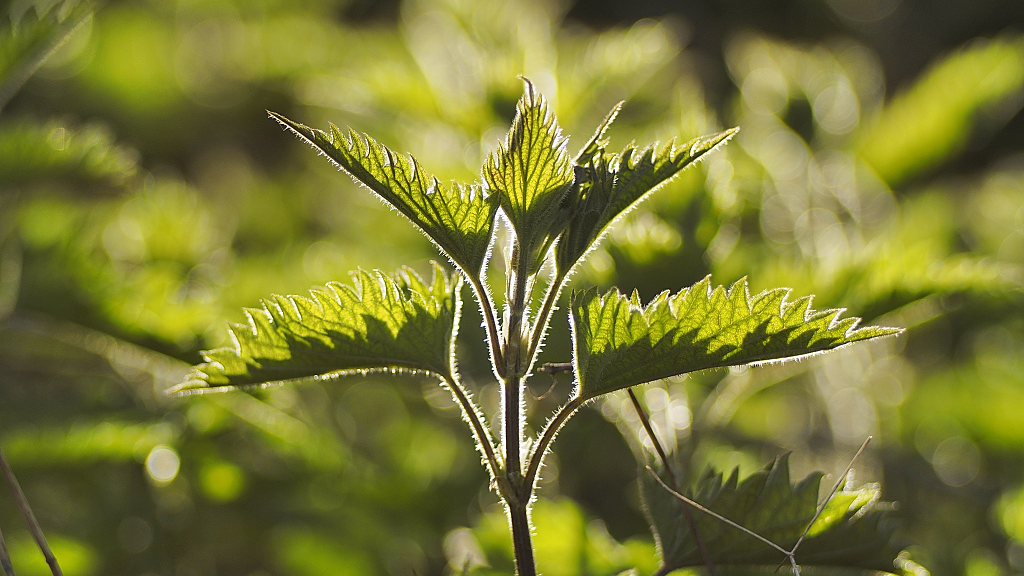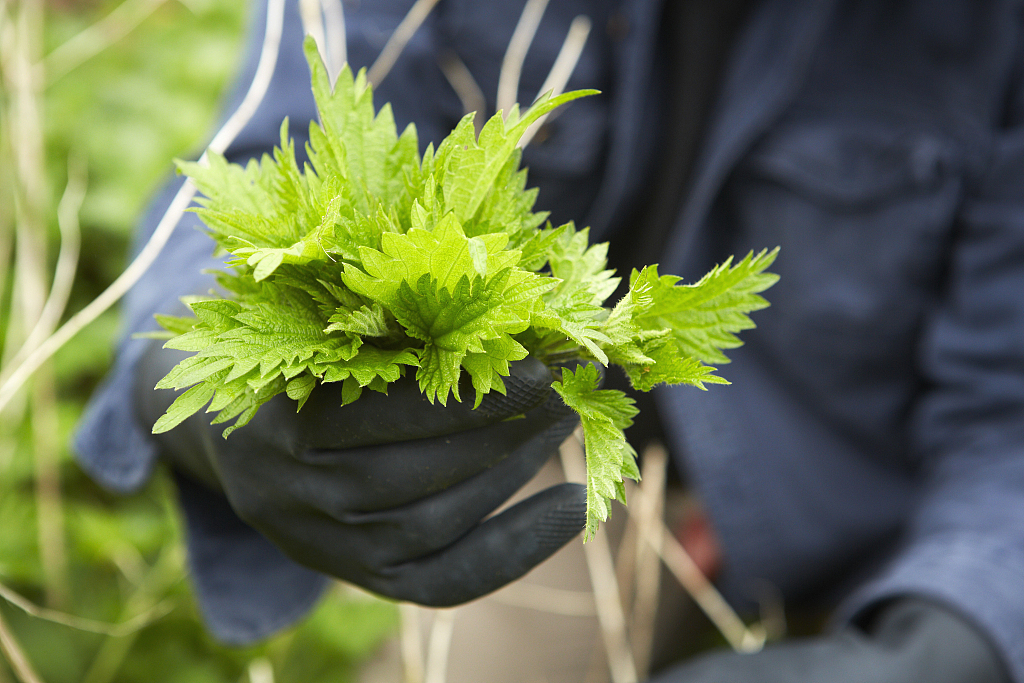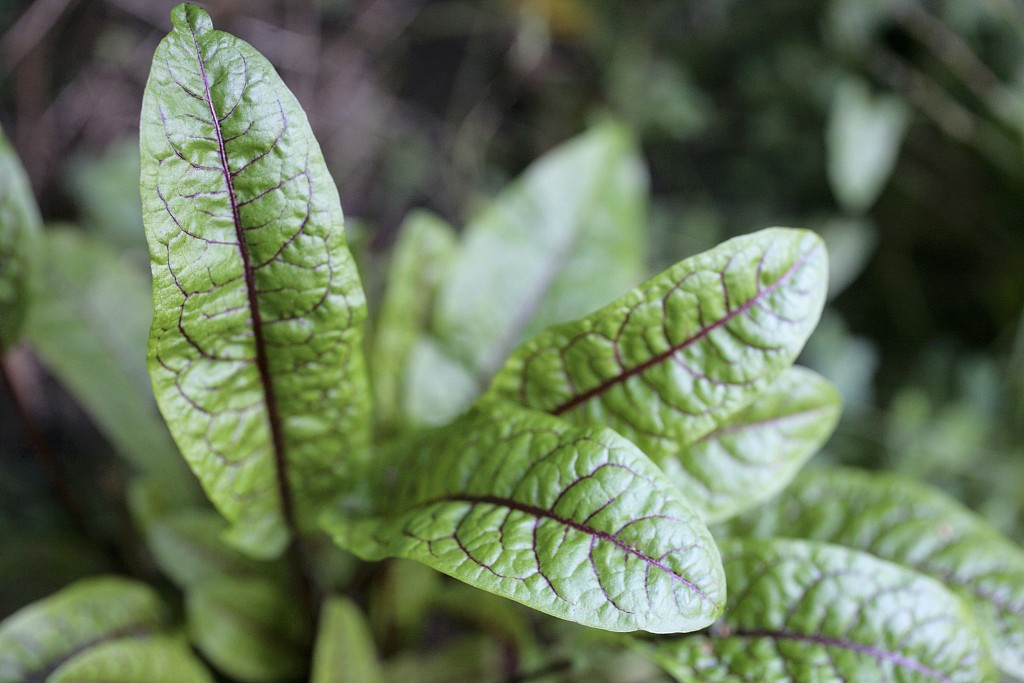

Walking in the mountains of Shangri-La, southwest China's Yunnan Province, one must be careful of some plants which might cause injury.
Nettle is a common plant in China. It is native to Europe, much of temperate zones in Asia, and western North Africa, and now could be found worldwide. As a multi-purpose plant, it has been used in traditional medicine, food, tea, and as textile industry's raw material in ancient Chinese societies.

Nettle has many uses. /VCG Photo
Despite its multi-functions, this plant could be dangerous because it can "sting" people if they touch it. On the leaves and stems of nettle distribute many stinging hairs. These hairs are called trichomes, and they will act like hypodermic needles that inject chemicals to people's skin if they touch the plant. The chemicals, including histamine, will produce a stinging sensation and cause swelling as well as pain.
Fortunately, the neighbor of nettles can be accommodating in stinging cases. The sorrel, which is a common herb that usually cultivated as a salad vegetable, often grows next to the nettles. The juice of sorrel leave can produce alkaline material that neutralized nettle's chemicals to relief pain.

Sorrel's leaves. /VCG Photo
If you got stung by nettles in the wild, make sure you remember the steps to cure yourself.
First, clean your wound with water; do not scratch on the swelling part. Second, carefully look for sorrels. Make sure you do not get a second sting on your skin while searching. The sorrel has large leaves and thick stem, and it usually grows naturally in the same areas where you may come across a stinging nettle. Third, rub the leaves and apply the juice on your wound. If the syndrome of pain does not reduce after one hour, please go to see a doctor.
(Cover image via VCG. Video provided by the CGTN's Xing Fangyu)
(If you want to contribute and have specific expertise, please contact us at nature@cgtn.com.)

Copyright © 2018 CGTN. Beijing ICP prepared NO.16065310-3
Copyright © 2018 CGTN. Beijing ICP prepared NO.16065310-3